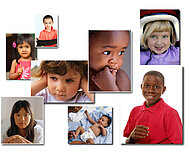Human Development and Family Science

Human Development and Family Science
Human Development and Family Science Major
At the undergraduate level, the department offers a curriculum leading to a Bachelor of Science or Bachelor of Arts degree through five options: adult development and aging; child and adolescent development; family science; child development/elementary education; and family science/social work. Human Development and Family Science majors are prepared to work in a variety of areas related to children, aging adults, and families. Employment opportunities include parent and family life educators, extension agents, child protection service professionals, financial counselors, nursing home activity directors, credit specialists, and directors of child care licensing.
Coursework provides students with an ecological approach to the study of human development and families with emphasis on the interactions of individuals, families, and the broader environmental context. Allowing students to select electives within the department to specialize in careers of interest provides flexibility.
Note: All credits in Human Development and Family Science must have grades of 'C' or better.
- Adult Development and Aging Option prepares students for careers involving direct and support services for adults of various ages as well as graduate studies. A minor outside the department is required.
- Child and Adolescent Development Option: This option prepares students for careers involving direct and support services for children and adolescents as well as graduate studies. A minor outside the department is required.
- Family Science Option: This option allows students to take a concentration of courses in family science or family economics in preparation for careers in direct and support services for families as well as graduate studies. A minor outside the department is required.
Human Development and Family Science Minor: The Human Development and Family Science minor is especially appropriate for students majoring in the social or behavioral sciences and other students planning careers that involve work with people. The minor requires 18 credits, including HDFS 135 (Family Science), HDFS 230 (Lifespan Development), and 12 credits of HDFS electives. Of the 12 credits of electives, at least nine credits must be upper division (i.e., 300 or 400 level) and no more than three credits may be in field experience (HDFS 496).
Human Development and Family Science (Child Development option) & Elementary Education Valley City State University
Human Development and Family Science (Family Science option) & Social Work Minot State University
Graduate School Tracks
Students who intend to pursue graduate degrees need special coursework to prepare them for entry to advanced degree programs. Pursuing a higher degree will broaden students' career opportunities and typically results in the attainment of higher paying jobs than those who have a bachelor's degree. Students who intend to go to graduate school need a greater emphasis on research and writing than other students.
Graduate School Track information


